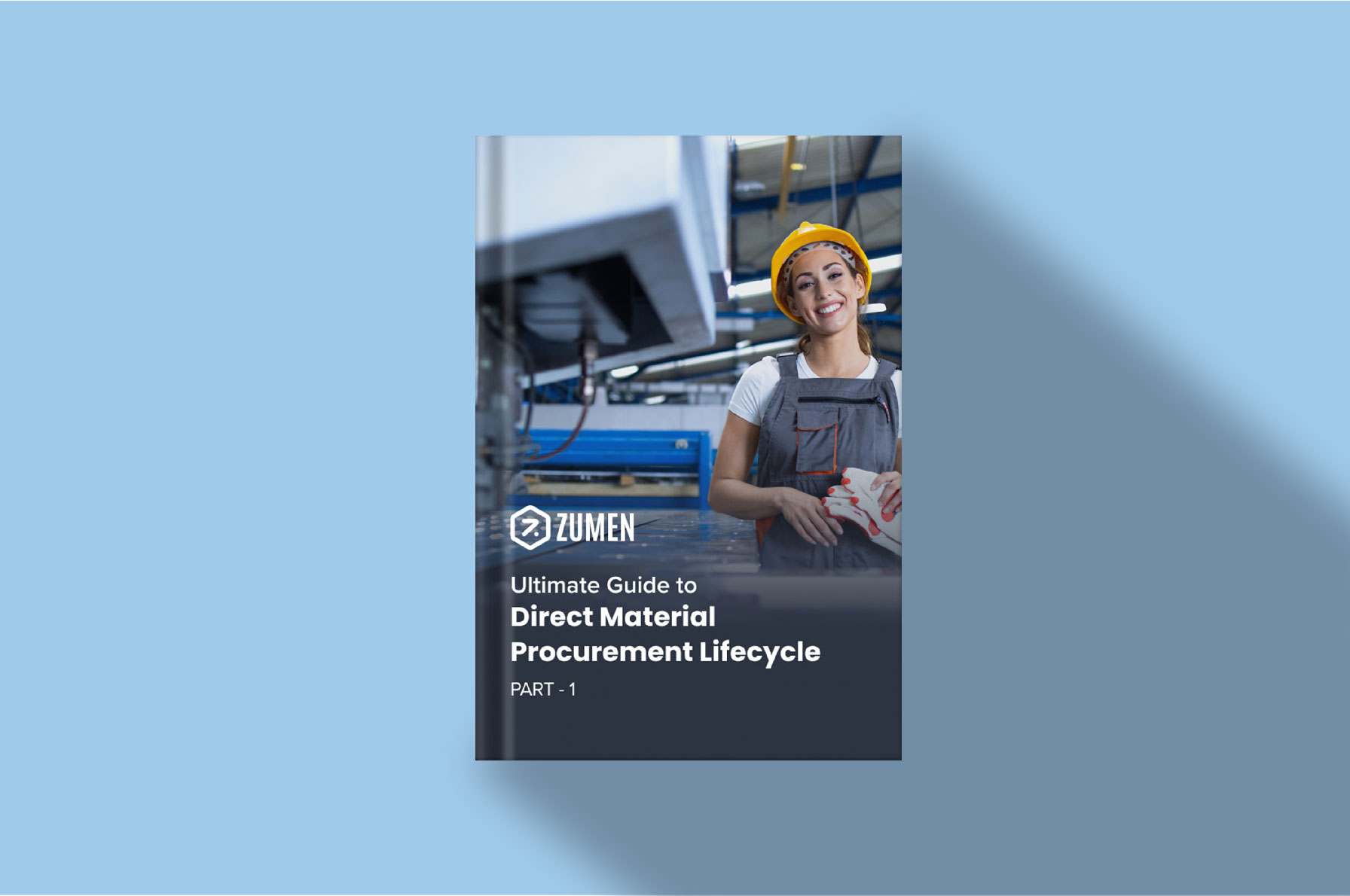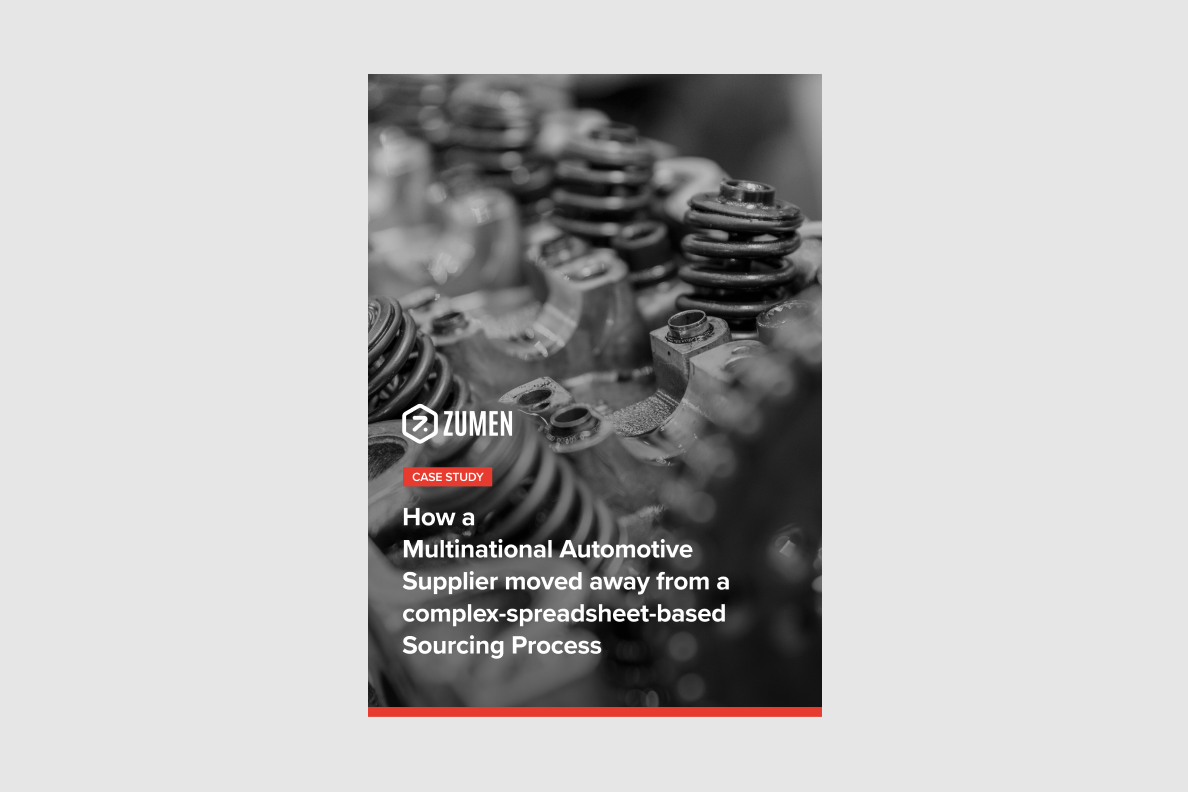Supplier Relationships: 5 Ways to improve
Manufacturing | January 10, 2022 | By
Supplier Relationships:
A successful product manufacturing company requires a strong supply base, given about 70% of the value of the product is derived from the Direct Materials sourced from their suppliers. The relationship that a buyer has with the supplier has a direct impact on their success. At the heart of a good relationship with the suppliers lies Communication. Improper communication means missed orders, production schedules taking a hit, missed targets resulting in shortages, and overall poor operational efficiency leading to a poor bottom line. Whereas a good Buyer-Supplier relationship is highly collaborative and impacts all stakeholders involved, translates into higher vendor satisfaction that positively affects a company’s bottom line through a faster ROI and continuous cost improvement.
Here are 5 ways to improve Supplier relationships
1. Invest in Technology for transparency :
 Maintaining a good supplier relationship involves a lot of collaboration. This includes managing purchase orders, accounts payable, and RFQs across multiple platforms. Investing in a cloud platform that seamlessly connects buyers and suppliers on a single platform would make this collaboration easier. On a cloud-based platform, the interactions are recorded in real-time for the suppliers and buyers to see. This transparency helps both parties to track every part of the PO Process ensuring that nothing is missed. For the collaboration to be effective, the technology platform has to be used by both the buyer and supplier.
Maintaining a good supplier relationship involves a lot of collaboration. This includes managing purchase orders, accounts payable, and RFQs across multiple platforms. Investing in a cloud platform that seamlessly connects buyers and suppliers on a single platform would make this collaboration easier. On a cloud-based platform, the interactions are recorded in real-time for the suppliers and buyers to see. This transparency helps both parties to track every part of the PO Process ensuring that nothing is missed. For the collaboration to be effective, the technology platform has to be used by both the buyer and supplier.
2. Have detailed contractual agreements
It is necessary to draft Supplier Relationship Agreements if you are buying from the same vendor on a regular basis. Detail everything that you expect from your partnership like Item/Service Description, Price, Delivery Terms, Payment Terms, and so on. The agreement reflects the complexity of your business requirements. If your agreement is well-documented, the chances of disputes occurring are reduced. It also lessens confusion.
3. Measure Performance with Defined Metrics
Specify the data that you need from a supplier and set standards for how you measure that data. Being able to evaluate Supplier performance creates an open and effective communication channel to quickly relay both the positive and negative aspects. This improves collaboration and performance. Usually, manufacturers communicate these metrics with supplier scorecards and share them with suppliers on a regular basis. Here are some key metrics you can measure:
On-Time Delivery
Cost
Quality
4. Pay your Suppliers on time
Paying your supplier on time ensures they stick to you. It also leads to a long-term, valuable relationship. Suppliers need manufacturers who are easy to work with. Paying suppliers on time proves to them that you are a reliable customer. If you cannot make the payment on time, inform the supplier the date by which they will be paid. This will clear any misunderstanding. You can use software solutions to automate the payment process if you have issues like controlling spend.
5. Consistent Communication
Communication with the supplier is not a one-time event. It is an ongoing process. A strong supplier relationship will make disagreements and problems easier to solve. Negotiations will be smooth. A long-term relationship would also enable you to strike a better deal. A strong relationship is a win-win situation for both parties. Also, make sure you give your supplier feedback. This will help them make necessary improvements and result in better output.
Conclusion:
Increasingly, companies realize the need to have a proper Source to Pay (Source-to-Contract and Procure-to-Pay) platform for this reason. There are several highly evolved S2P and P2P platforms available globally. And companies like Zumen in particular help in meeting these objectives for the manufacturing vertical, with strong integration to the Product Life Cycle Management and the ERP suites.
















